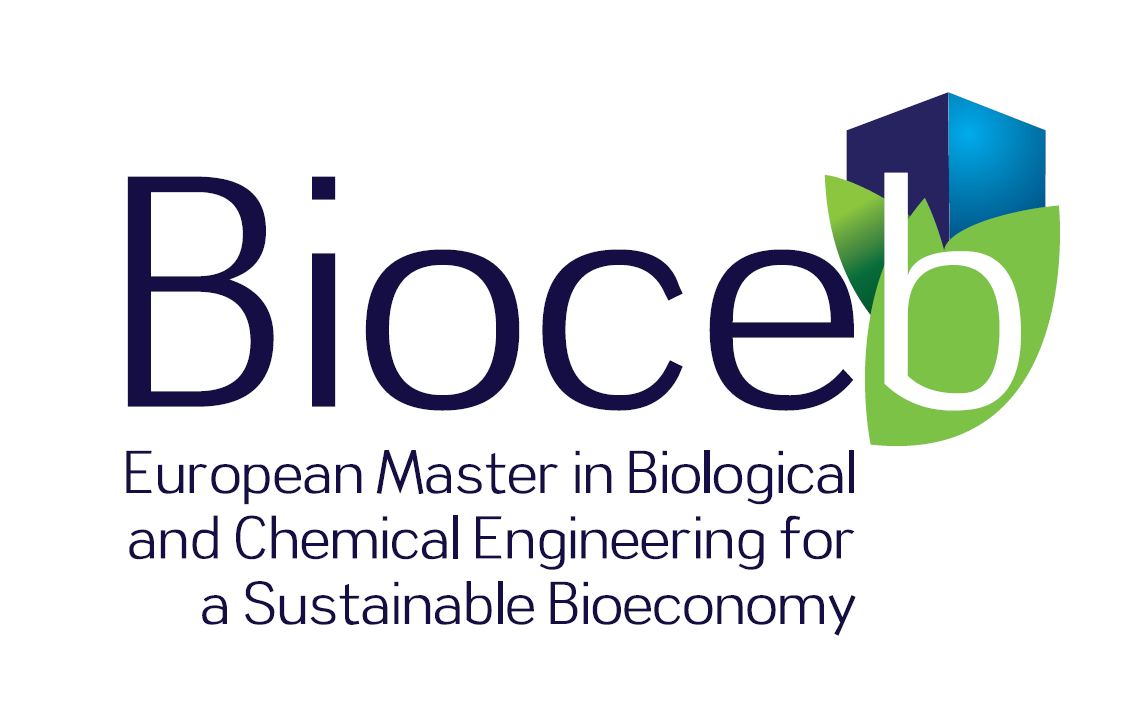Selection procedure
Eligibility criteria:
The files are checked by Bioceb Secretariat. Incomplete files, files sent after the deadline are eliminated.
All non-eligible candidates are informed immediately, provided with the reasons of their ineligibility, and have the possibility to appeal if they think an error has been made or an unfair bias against their application occurred.
Minimum admission requirements:
Only students meeting the following formal admission requirements will be considered for the selection procedure:
• BSc degree or equivalent degree of at least 180 ECTS in engineering or science including a strong background in at least one discipline related to biology: biotechnology, biochemistry, microbiology, biophysics, bioprocess engineering, molecular biology;
• Preferred but non-mandatory: a complementary background in chemistry, physics or environmental sciences;
• Demonstrated English language proficiency - B2 advanced.
English advanced proficiency is required and proof of proficiency is compulsory.
Only these official English tests will be accepted:
– IELTS Academic with an overall minimum score of 6.5, and 5.5 for Writing.
– TOEFL:
- TOEFL iBT (Internet-base Test) with a minimum overall score of 92 and 22 for writing. TOEFL iBT® Home Edition test is accepted.
- TOEFL PDT (Paper-deliveredTest) with a minimum score of: Reading 22, Listening 22, and Writing 24.
- Only TOEFL iBT or PDT tests are accepted, for example TOEFL Essentials or TOEFL ITP tests are not accepted.
– Cambridge C1 Advanced/ C2 Proficiency:
- C1 Advanced (previously called Cambridge Certificate in Advanced English, CAE): A, B or C.
- C2 Proficiency (previously called Cambridge Certificate of Proficiency in English, CPE): A, B, C or Level C1.
– Pearson Test of English Academic (PTE A): min overall score 62, and 54 for writing.
– An English language test is not required ONLY IF: you have earned a degree in an English-medium programme (a certificate from the university is required to prove this) at a Higher Education Institution of applied sciences in an EU/EEA country, or in an English speaking country with English as its official language.
Besides, the Bioceb Selection Committee pre-selects only the best students among those who meet the minimum admission requirements, by assessing the whole application of each student.
Selection criteria and procedure:
Students who meet the minimum admission criteria, will be then assessed, in the framework of a 2 steps selection procedure, by 2 members of the Bioceb Selection Committee based on the following qualitative selection criteria:
SELECTION – FIRST STEP:
1) Excellence - Including: Content of studies, GPA and University ranking (weight 35%)
2) Background and experiences: including but not limited to: CV, professional experience, conferences, mobility (weight 10%)
3) Motivation - Why Bioceb? Future plans, personal attitude, team spirit (weight 20%)
4) Recommendation (weight 10%)
SELECTION - SECOND STEP:
Pre-selected candidates will be interviewed by Bioceb Selection Committee.
5) Inteview (weight 25%)
This will be a short interview (around 20-30 minutes), face-to-face (by video-conference) about the motivation and the choice of the study track.
Please note that ONLY the top candidates will be interviewed, so you have to wait to be contacted by Bioceb for interview. Being interviewed does NOT mean that you will be selected.
When will I know if I am selected?
All candidates are informed in April about the results of the selection process. Please check your spam. All students will be informed of the results.
Privacy statement
If you are selected (proposed for a scholarship/fellowship, put on the reserve list or enrolled on a self-paying basis) your data may be used for the purposes of evaluating the programmes, efficiently manage the projects, and producing statistics. Data could be made available to the EACEA, the European Commission, the European External Action Service staff, as well as to other stakeholders of the Erasmus+ programme, such as Erasmus+ National Agencies, National Erasmus+ Offices and the Erasmus Mundus Student and Alumni Association.
For more information, please read the privacy policy.
This project has been funded with the support from the European Commission. This communication reflects only the views of the author, and the Commission cannot be held responsible for any use which may be made of the information contained therein.
- Updated March 2024 -

